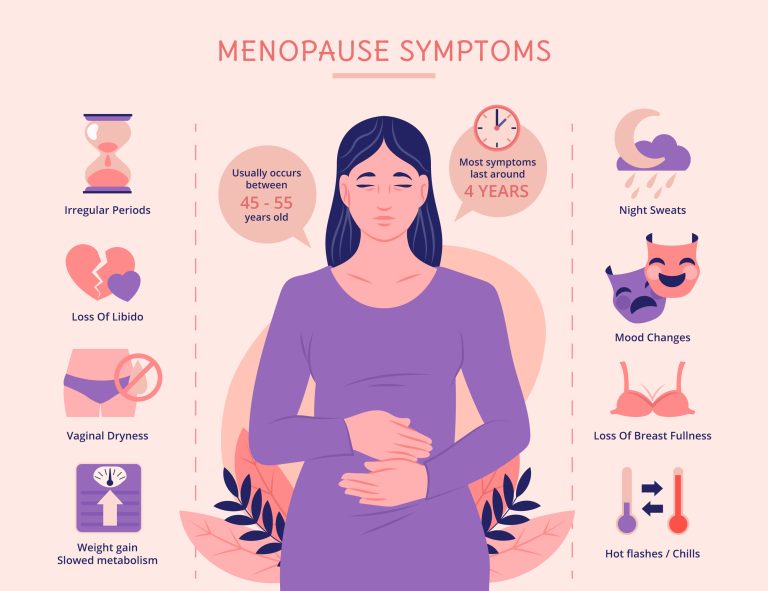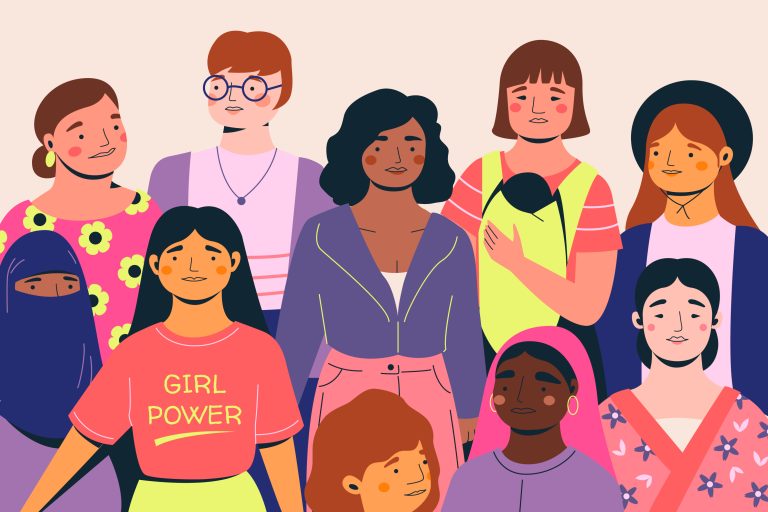Menopause 101: A Basic Guide
- Menopause is a gradual transition that reshapes body, mood and identity in unique ways.
- Symptoms vary widely; there is no ‘one-size-fits-all’ experience.
- Knowledge and support make menopause easier to navigate.
Menopause is a significant biological change for every menstruator. It usually occurs between the ages of 45 and 55. Menopause signals the end of menstrual cycles, and its impact extends far beyond reproduction. Hormonal changes influence everything from bone strength and heart health to sleep, mood and skin. For some menstruators, symptoms are barely noticeable. Yet, for others, they reshape daily routines. Understanding menopause can help one approach menopause with knowledge and agency rather than fear.
What is Menopause?
When a menstruator goes more than 12 consecutive months without a period, they enter a stage called menopause. This transition occurs as the ovaries slow down, leading to a gradual stop in production of reproductive hormones like estrogen and progesterone.
Some menstruators can also undergo induced menopause. Surgeries like oophorectomy, in which ovaries are removed, or medical treatments like chemotherapy, can cause early menopause.
The Three Stages of Menopause
Menopause does not happen suddenly. It happens gradually in three stages:
- Perimenopause (the transition): This phase can begin 8 to 10 years before menopause. It can last a few months or several years as estrogen levels slowly decline. One might experience irregular cycles and symptoms such as hot flashes, night sweats or mood swings. This phase often starts in the 40s.
- Menopause: Menopause is a defined stage; it does not last forever. At this point one has gone 12 months without getting a period. By now, ovaries have stopped releasing eggs and estrogen production is minimal.
- Post menopause (the life after): This stage lasts the rest of your life after menopause. While many symptoms settle down, lower estrogen increases the risk of conditions like osteoporosis and heart disease, making preventive care especially important.

Signs of Menopause
Menopause does not happen overnight. It happens gradually, often becoming noticeable through small changes throughout the body. For many menstruators, the earliest sign is a shift in their menstrual cycles. Periods may become irregular; the flow may change – lighter or heavier or they become unusually spaced apart. Alongside this one might experience hot flashes and night sweats bringing sudden waves of heat that disrupt daily comfort and sleep.
One could also notice changes like vaginal dryness that affects intimacy, a frequent urge to urinate, restless nights or shifts in mood and concentration. Some notice changes in their skin, hair or weight. Others feel joint stiffness, headaches or a racing heartbeat.
Every experience of menopause is unique. Some go through it with only mild disruptions, while others find the symptoms more intense. Whatever might be the case, all these changes are linked to the body’s shifting hormone levels. If you’re uncertain about whether your symptoms relate to menopause, checking in with a healthcare provider can bring clarity and reassurance.
Managing Menopause
Menopause is a natural transition. But even then, its impact can feel disruptive. One can turn to hormonal therapy to relieve menopause symptoms. Though it is an effective method, it is not the perfect treatment for everyone.
Others can turn to non-hormonal changes. This means making lifestyle changes or taking non-hormonal medicines. Staying active and eating a nutrient-rich diet supports bone and heart health. One could also take cognitive behavioural therapy.
For symptoms like hot flashes or vaginal dryness, hydration, cooling techniques or lubricants may help.
Emotional support is equally important. This can be through open conversations with friends, family or support groups. Joining a support group can provide an outlet for the many emotions running through your mind and may also help answer questions you may not even know you have.

Conclusion
Menopause marks the close of one chapter in the body’s reproductive journey, but it also opens another, one that deserves care, attention and respect. It is a natural transition but that does not mean you have to navigate it on your own. If your symptoms affect your daily life, reaching out to a healthcare provider can make a real difference. From lifestyle changes to medical treatments, support exists to help you feel more at ease.
https://www.who.int/news-room/fact-sheets/detail/menopause
https://my.clevelandclinic.org/health/diseases/21841-menopause#overview
https://www.nia.nih.gov/health/menopause/what-menopause
https://newsinhealth.nih.gov/2018/07/preparing-menopause
Author


1 thought on “Menopause 101: A Basic Guide”
This informative article feels really helpful and reassuring. It clearly explains menopause stages and offers practical tips, making it easier to understand this life transition without feeling alone.